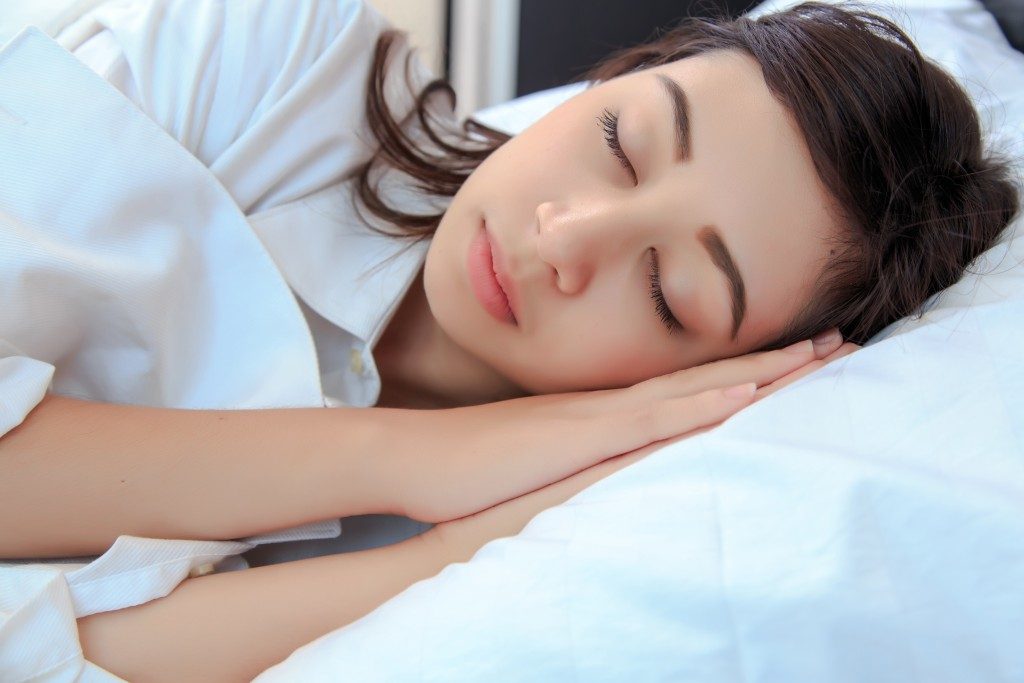It’s one of those ancient health advice parents always say: never go to bed with wet hair; otherwise, you’ll get colds or flu. But then, everybody’s been there — you’re super tired, so stressed out by a long day that you want to shower fast, slip into your pajamas, and dive right in your bed to snooze. Thankfully, wet hair while asleep and the resulting flu is just some old myth with no scientific basis. Don’t rejoice yet though, because you’re not off the hook entirely: dozing off while your hair is still damp can cause problems on your mane. Here are those specific problems:
It gets prone to breakage
Hair is in its most vulnerable state when it’s damp. That’s because it swells when it comes into contact with water. The swelling puts pressure on the proteins that keep your hair intact, which then results in higher risk for breakage. This is the reason hairstylists highly recommend using wide-toothed comb after bath to avoid the stressful pulling that all the more puts your locks vulnerable to damage. The thing is, when you sleep on wet hair, you run the risk of having it tugged unintentionally as you move your head involuntarily while on dreamland. This result is, your hair snapping quickly. More easily when you’re using a cotton pillow (blame it on the friction between your head and the cushion). So make sure to dry out your locks first before hitting the sack. And take note of proper way to do it. Let it air-dry first for at least 10 minutes or so, then use your dryer, adjusted to the coldest setting. Keep it at about 6 inches away from your hair. As for your pillow, choose satin or silk for better cushioning and less abrasion for your hair.
It may cause dandruff
Your scalp health is on the line when you leave your hair wet when sleeping. The combination of constantly damp pillows and warmth from your head makes for an ideal breeding ground for bacteria or fungus. This may lead to seborrheic dermatitis, a skin condition that triggers scaly spots, red skin, and dandruff. If you’re suffering from dandruff already, your sleeping condition can aggravate further the problem. Aside from finding creative ways to dry out your hair before dozing off, you should be able to find an effective solution for your scalp problem too. Try argan oil natural shampoo and conditioner for dandruff. If you’re into home remedies, you can use coconut oil, aloe vera, or apple cider vinegar. Take note of your routines, too. Manage stress as much as you can to avoid exacerbating dandruff.
It’s all tangled up in the morning
If you don’t care about hair breakage or dandruff, you probably care about not being late for office. Sleeping with wet hair can cause strands to be tangled so severely that it forms into knots. If you’re not in the habit of brushing your hair after a bath, you’re all the more creating a mess of curls that will set as you sleep, making it harder for you to untangle them in the morning — making it harder to untangle without snapping the strands. If you’re thinking of tying the hair in a bun to keep it together, you’re back to increasing the risk for breakage as your hair tie pulls it in. If you really can’t commit to drying your locks before sleeping, then don’t wash it at night. Use dry shampoo instead. This doesn’t just give you that clean, fragrant feeling, but also regulates oil production, which is healthier for your hair.
Don’t Sleep with Wet Hair
Yes, it’s a real struggle to wait for your hair to dry before hitting the sack. But if you care about your locks keeping that silky, smooth texture and look, you’re going to have to grab that dryer, girl.

